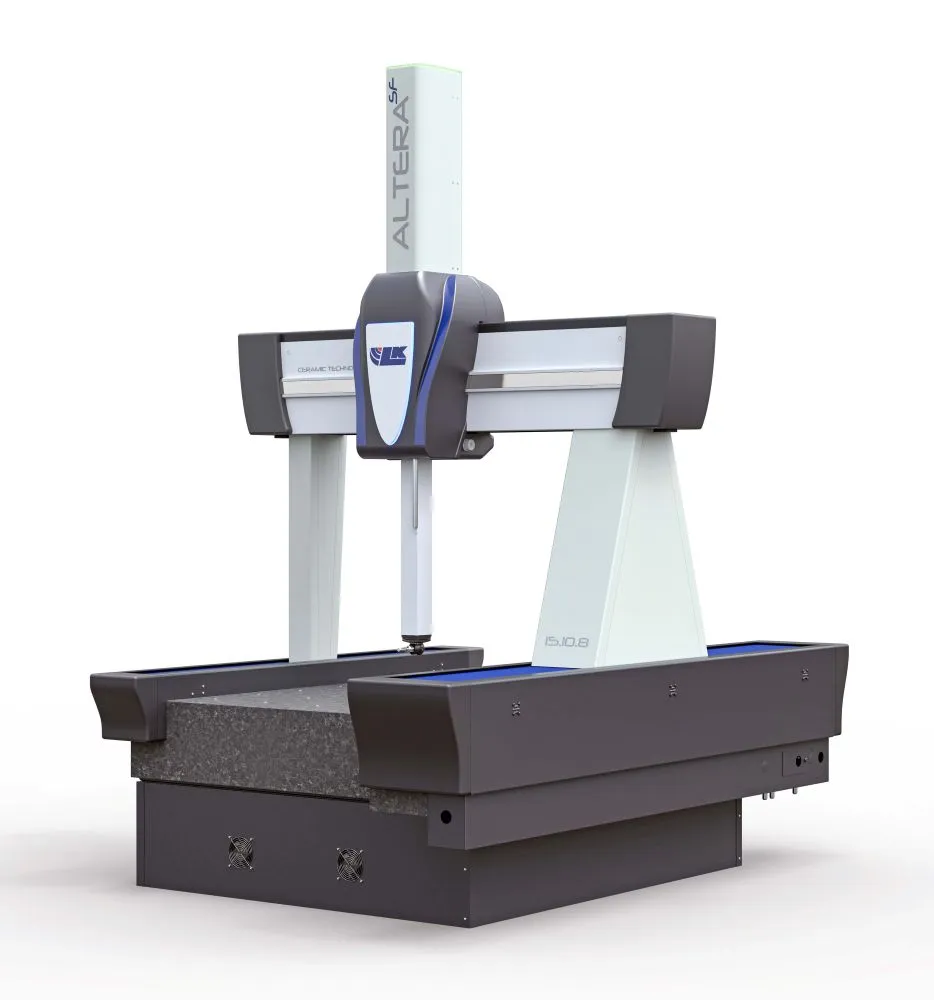
Inspection using a coordinate measuring machine (CMM) in a production environment brings enormous advantages compared with transporting components, sometimes considerable distances to a separate quality control (QC) room. Benefits include faster inspection, quicker reporting, reduced lead times, rapid feedback on part conformity for prompt adjustment of manufacturing processes, increased output, reduced scrap and raised efficiency. Eliminating the need to transfer parts to another location saves labor costs and time, reducing the risk of damaging the parts being handled. It also allows the QC function to be closely integrated with production and automated if desired.
To meet such high precision inspection requirements in the rugged environment of the shop floor, CMM manufacturer LK Metrology, whose manufacturing facility is in Castle Donington, Derbyshire, has introduced eight bridge-type Altera SF models having laboratory-grade accuracy. These CMMS were launched at Control 2025, the annual international trade fair for quality assurance held at the Messe Stuttgart, Germany.
Normally, industrially hardened CMMs with the necessary temperature compensation and vibration isolation tend to be small to fit into confined spaces, but these new models have generous nominal axis travels ranging from 1,000 x 1,000 x 800 mm up to 4,000 x 1,500 x 1,500 mm. The large measuring volumes mean that bulky workpieces can be inspected near where they are produced, while the extra capacity affords more operational flexibility by allowing QC requirements to be met across a wider variety of component sizes.
All SF-series CMMs have a ceramic bridge and spindle with an outstanding stiffness-to-weight ratio, thermal characteristics, dimensional stability and longevity. Friction drives with air bearings provide smooth axis movements, leading to high accuracy laser or analogue scanning, or touch-trigger probing. Either a Renishaw PH10MQ PLUS indexing probe head may be used, or a REVO2 head which converts the CMM into a 5-axis Scantek model. Both heads support multi-sensor technology.
Covers protect the guideways from thermal influence, accidental damage and contamination, aided by positive internal air pressure to prevent the ingress of dust and vapor particles. Fans under the granite table ensure a continuous flow of ambient air to avoid thermal imbalance in environments where there is no temperature control, as is the case on most shop floors. Temperature sensors embedded in each axis of the CMM monitor heat fluctuations within the structure and compensate all measurements to a 20°C reference. Optionally, thermistors can be clamped or attached magnetically to a workpiece or integrated into its fixture.
In a notable departure from the construction of LK’s other ceramic-type CMMs, which use stainless steel linear encoders, Altera SF machines incorporate glass-ceramic optical scales that have zero thermal expansion as well as superior immunity to contamination, minimizing potential sources of measurement error. The low-maintenance scales have excellent long-term stability, while signal stabilization results in low and predictable interpolation error.
Elastomer anti-vibration and shock-absorbing mounts isolate the CMM from sources of mechanical disturbance, such as machine tools. Passive anti-vibration may be specified, but to ensure maximum measurement accuracy, active intelligent anti-vibration is recommended. It involves built-in magnetic field sensors that detect the load on the table and monitor its height and level, enabling them to be automatically adjusted electro-pneumatically to within ±0.1 mm and 0.9 mm respectively. As the sensors are non-contact, they remove the disadvantage in traditional mechanical-pneumatic compensation systems of having an integrated tappet, or plunger, which is exposed to contamination and is a potential conduit for vibration transfer.
Altera SF machines, with their proprietary LK NMC300 multi-purpose controller and CAMIO software suite, are ready for in-line or line-side automation to suit large volume production.